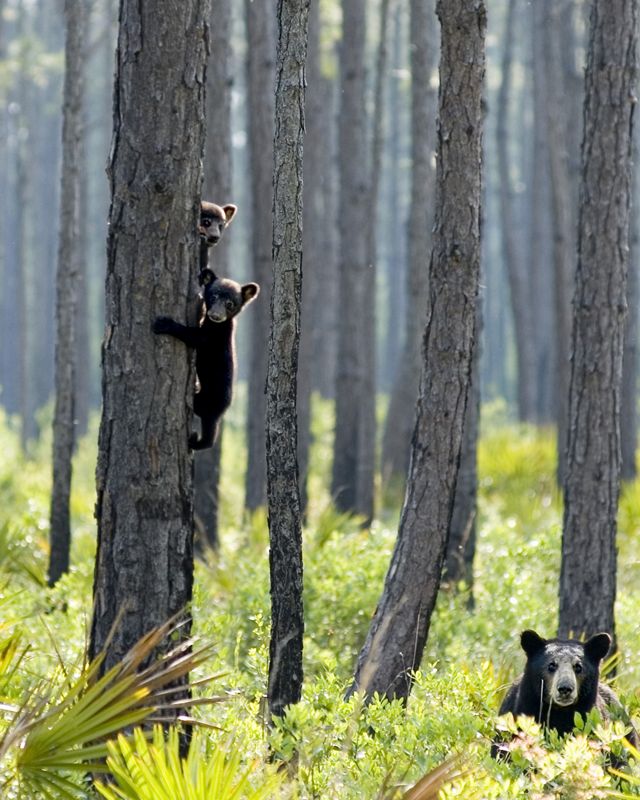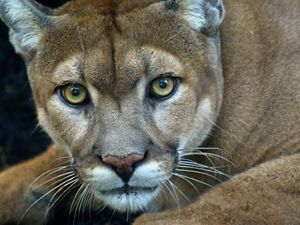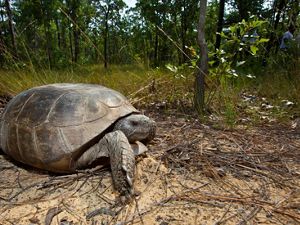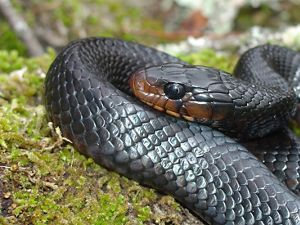Protecting Florida’s Black Bears
TNC is working to safeguard lands and corridors for Florida's black bears.
Florida black bear populations are confined to just eight isolated habitats. The bears face serious challenges in our state, mostly because of us. Encroaching development like residential communities and roadways has reduced and fragmented bear territory. The Florida Fish and Wildlife Conservation Commission estimates that only 3,000 Florida black bears (Ursus americanus floridanus) remain in eight isolated habitats throughout the state.
TNC continues to work to protect and connect critical habitats for black bears. To thrive, these animals require large, intact landscapes. Adult males may wander over 120 square miles in search of a mate or food—mostly plants, saw palmetto berries, acorns and insects. Without connected wildlife corridors and access to appropriate food sources, bear populations cannot thrive, and may become genetically isolated.
Quote: Temperince Morgan
Our diverse habitats and wildlife are part of what makes Florida a special place. We continue our efforts to protect critical land connections, including the woods in which bears and a multitude of other wild species are found.
When bear territory is protected, other threatened species also benefit. Humans do, too: Connected forests are important for our freshwater systems, and they provide natural protection from flooding, erosion and storms.
Here’s one way TNC works to conserve forest territory for bears: We funded a study to explore potential bear corridors in north-central Florida. The huge Ocala National Forest is connected to protected lands in the Wekiva River Basin by a narrow, partly populated 20-mile greenway edged by urban areas. University of Florida scientists worked with FWC and other partners to create a digital map, layering more than a decade of bear-tracking data with population information.

Highway Hotspots Can Be Deadly
The study also considered highway hotspots. Prior to the study, four of every five of Florida’s deadly bear-vehicle collisions occurred in this area, 130 in one year alone.
The study then mixed the bears’ needs with financial reality to identify three major wildlife corridor options. TNC has pursued strategic parcels within the greenway on behalf of its government partners. Tens of millions of dollars have been committed to create a wildlife corridor. Although more than half of the 76,698 possible acres have been protected, critical gaps in the greenway remain.
Because fragmentation of territory continues, people and bears live in closer proximity in Florida than ever before. Bear country is home to roughly 1.3 million households, with many edges—interfaces where urbanization meets wild and natural spaces. An increase in human-bear interactions indicates that management and conservation of black bears will require more than just additional lands. It will require a change in our behavior, too.
Floridians living in bear country may not realize black bears can detect food from more than a mile away. We inadvertently attract bears to our neighborhoods when we leave out unsecured trash, pet food, bird seed and barbecues. Bear-proof trashcans have been shown to reduce bear incidents by up to 95 percent. FWC has made funding available for bear-proof trashcans. Proper waste disposal and smart home maintenance can help keep bears in their natural environments, increasing safety for both bears and people.
TNC encourages a collaborative effort between management agencies, municipalities and residents to ensure a bright future for our black bears. You can help communities prevent negative interactions with bears.
A Lasting Legacy
Florida’s bear tracking project came at a high price. University of Kentucky’s Dave Maehr, Highlands County project lead scientist, was killed along with pilot Mason Smoak in an airplane crash in 2008 while performing bear tracking work. Maehr’s colleagues were determined to complete the bear tracking projects to honor his legacy.



